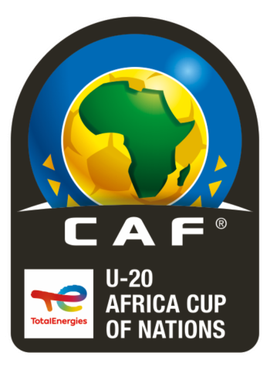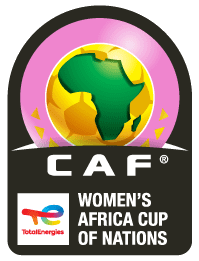
The Africa Cup of Nations, commonly abbreviated as AFCON and officially known as the TotalEnergies Africa Cup of Nations for sponsorship reasons, is the main biennial international men's association football competition in Africa. It is sanctioned by the Confederation of African Football (CAF) and was first held in 1957. Since 1968, it has been held every two years, switching to odd-numbered years in 2013.

The France national rugby league team represents France in international rugby league matches. They are referred to as les Chanticleers or less commonly as les Tricolores. The team is run under the auspices of the Fédération Française de Rugby à XIII.

Rugby league is a full contact football code and spectator sport played in various countries around the world. It is govererned globally by the International Rugby League.

Because of Lebanon's geography, both summer and winter sports are engaged in in the country. During autumn and spring it is sometimes possible to engage in both activities on the same day; for example, skiing in the morning and swimming in the afternoon.

The Nigeria national rugby league team represents Nigeria in international rugby league football competitions. They made their debut in the 2019 Middle East Africa Championship with a 23-12 victory over Ghana.

The Africa Women's Sevens is the continental championship for women's international rugby sevens in Africa. The tournament sanctioned and sponsored by Rugby Africa which is the rugby union governing body for the continent.

The U-20 Africa Cup of Nations, known for short as the U-20 AFCON and for sponsorship purposes as TotalEnergies U-20 Africa Cup of Nations, previously known as the African Youth Championship and the African U-20 Championship, is the biennial international youth football tournament organized by the Confederation of African Football (CAF) for its nations consisting of players under the age of 20. It serves as the African qualification tournament for the FIFA U-20 World Cup.
The 2014 Africa Cup was the fourteenth edition of the Africa Cup, an annual international rugby union tournament for African nations organised by the Confederation of African Rugby (CAR). The tournament, as well as the 2012 and 2013 editions of it, served as the qualifiers for the 2015 Rugby World Cup.
The 2017 Rugby League World Cup qualifying process began on 9 May 2015 with the 2015 European Championship C. In August 2014, it was announced that seven of the eight quarter-finalists at the 2013 tournament would receive automatic qualification. Fourteen teams took part in the qualifying process to fill the remaining seven spots.

The Women's Africa Cup of Nations (WAFCON), known for sponsorship purposes as the TotalEnergies Women's Africa Cup of Nations and formerly the African Women's Championship, is a biennial international women's football tournament organized by the Confederation of African Football (CAF) since 1998 as the qualification for the FIFA Women's World Cup for African nations. Initially started as a home-and-away qualification competition, it got rechristened as a biennial tournament in 1998 and took on its current name as of the 2016 edition.
The 2017 Rugby League World Cup Middle East-Africa qualification play-off was a two-match rugby league series, with the winner qualifying for the 2017 Rugby League World Cup. The matches were between South Africa and Lebanon and were played at Brakpan Stadium in Pretoria, South Africa on 25 and 31 October 2015.
The 2016 Africa Cup was the sixteenth edition of the Africa Cup, an annual international rugby union competition for African nations organised by Rugby Africa.
The 2017 Rugby Africa season contains a series of rugby union tournaments scheduled for 2017 and organised by the governing body of rugby union in Africa, Rugby Africa. The top-tier event is the Rugby Africa Gold Cup – formerly simply known as the Africa Cup – a six-team competition which was played on a round-robin basis from June to August 2017.
The 2021 Men's Rugby League World Cup qualification was the qualifying process which will decide the 8 teams that would join the 8 quarter-finalists from the 2017 World Cup including the hosts England, who received an automatic spot, at the 2021 Rugby League World Cup. The process commenced in June 2018, with the commencement of the 2018–19 Rugby League European Championship C tournament, which acted as the first round for European qualification.
Rugby league in Africa refers to the involvement of the sport of rugby league in the African continent.
The 2020 Middle East-Africa Rugby League Cup was a planned international rugby league tournament that would have taken place in October 2020. It was intended to be the third MEA Championship, following the 2015 and 2019 tournaments.
The 2026 Men's Rugby League World Cup qualification will decide the teams that will join the quarter-finalists from the previous World Cup at the 2026 Rugby League World Cup. The location of the tournament will be held in two venues within France.
The 2022 Middle East-Africa Rugby League Championship was the third MEA Rugby League Championship, following the 2015 and 2019 tournaments, and the cancelled 2020 edition.
The 2026 Women's Rugby League World Cup qualification was announced on December. It will feature four confederation qualification tournaments for each of the four International Rugby League confederations. The two group winners of Europe will directly qualify, while the playoff winner of the two runners up will face the winners of other three tournaments in the 2025 World Series for the final two spots in the 2026 Women's Rugby League World Cup.
The 2023 Africa Men's Sevens was the 13th edition of the Africa Men's Sevens, an annual African rugby sevens tournament. The qualifier event took place at the Labourdonnais Sports Grounds, Mauritius between 24 and 25 June 2023. The main event took place in Harare, Zimbabwe. The winner qualified for the 2024 Olympics in Paris, and the second and third placed teams qualified for the 2024 Final Olympic Qualification Tournament. In addition, the top two teams qualified for the 2024 Challenger Series.







